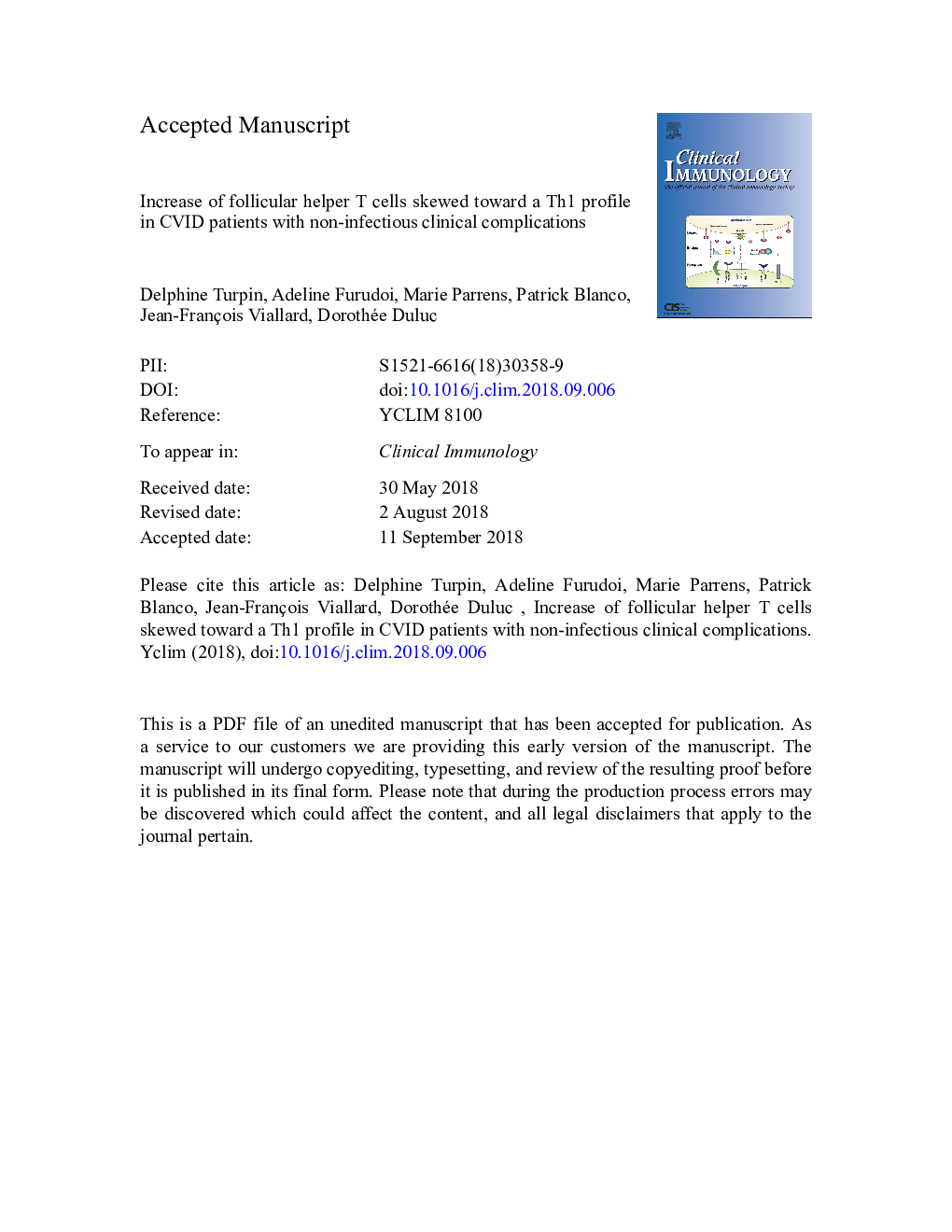| Article ID | Journal | Published Year | Pages | File Type |
|---|---|---|---|---|
| 11029113 | Clinical Immunology | 2018 | 18 Pages |
Abstract
Common variable immunodeficiency (CVID) is characterized by low levels of circulating immunoglobulins and defects in B cell maturation leading to an increased susceptibility to infections. Some patients develop complications such as autoimmune diseases, enteropathy, and lymphoproliferation, resulting in higher morbidity and mortality. Follicular helper T (Tfh) cells are specialized in helping B cell differentiation into Ig-producing cells. Three subsets have been described, namely non B-cell helper Tfh1 and the two B-helper cell subsets Tfh2 and Tfh17. We determined that circulating Tfh cells were elevated in CVID patients and skewed toward a Tfh1 profile. Interestingly, elevated levels of Tfh1 cells were significant only in patients harboring non-infectious complications regardless of the type of complication and inversely correlated with switched memory B cells. Moreover, CXCR3+ cells are increased in splenic CVID germinal centers. Our observations suggest that the altered balance in Tfh subsets in CVID is linked to a more severe disease.
Keywords
Related Topics
Life Sciences
Immunology and Microbiology
Immunology
Authors
Delphine Turpin, Adeline Furudoi, Marie Parrens, Patrick Blanco, Jean-François Viallard, Dorothée Duluc,
